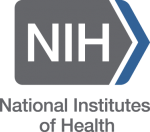NIH GRANTS POLICY STATEMENT EXPERT CPAs
The NIH and HHS has its own Payment Management System, supplemental regulations governing Fringe and F&A rates, and accounting, reporting and auditing mandates under 45 CFR Part 75.

The National Institutes of Health (NIH) and its parent, the Department of Health and Human Services (HHS) exist to protect and improve our nation’s health. They do this by conducting, supporting and funding research. The vast majority of these funds are awarded as grants, with a smaller portion being awarded through contracts.
All of these funding awards are “cost reimbursable” type funding vehicles and require the recipient to properly account for all actual project specific costs in accordance with FAR Part 31 and NIH Supplemental Regulations found in the NIH Grants Policy Statement – and are subject to several types of audits.
THE NIH GRANTS POLICY STATEMENT
The NIH Grants Policy Statement outline the terms and conditions that come with accepting a NIH grant, which are almost always cost-reimbursable-type funding awards. If you have accepted a NIH Grant, you are subject to the following accounting requirements:
Form SF-425, Federal Financial Report (FFR)
Filed within 30 days after each annual budget period and within 120 days after the end of the grant – this report reconciles the funds drawn from the Payment Management System (PMS) to the actual spending from the Company’s accounting system. The form sign-off includes a certification (on line 13) that “any false, fictitious, or fraudulent information may subject me to criminal, civil, or administrative penalties”.
Improper cash draws from the PMS and improper supervision/accountability of subcontractors and consultants are the most common audit findings that require repatriation of funds.
2 CFR 200, Subpart F – The Uniform Guidance Audit
If an awardee has annual revenue from grants that exceeds $750,000 (which is increasing to $1M for fiscal years beginning after 10/1/24) then it is also subject to an annual Uniform Guidance Audit, f.k.a an OMB A-133 audit. The awardee is required to hire and pay for a CPA firm professionally qualified to conduct this type of audit, which encompasses both financial and compliance components within nine months of the company’s fiscal year-end. The auditor’s report is reviewed by the Inspector General’s Office (IG) for quality control purposes and the CPA firm’s work papers may be audited by the IG.
The annual negotiation of your incurred cost submission will not occur until DFAS is provided a copy of your final Uniform Guidance Audit report.
Negotiating a Fringe and F&A Rate
You are required to prepare an Annual Incurred Cost Submission within 180 days after your Company’s fiscal year end and must reflect all general ledger expenses on a generally accepted accounting principles (GAAP) basis. This report is used to settle the final accounting for all HHS/NIH grants and contracts, including the negotiation of an indirect cost* rate agreement or NICRA.
Here’s what needs to be filed to receive a Negotiated Indirect Cost Rate Agreement (NICRA):
- A copy of your financial statements prepared in accordance with generally accepted accounting principles (GAAP).
- All expenses must be accounted for and reported as either direct, indirect and unallowable based on FAR Part 31.
- All labor costs must be distributed through the general ledger on an accrual basis and must reconcile to the quarterly payroll tax returns – a cash basis document.
- Indirect costs need to be proportionally allocated to all grant and non-grant activities based on the methodology used in your NICRA.
- A schedule detailing all employee salaries costs distributed, as well as an organization chart.
- An Accounting Policies and Procedures manual and any Employee Handbooks.
- Detailed descriptions of all consulting and subcontracting costs.
- All the Fringe and F&A rate supporting calculations for the year.
Once the annual Incurred Cost Submission is filed, any over-billing or under-billing of indirect expenses must be proactively remedied on a grant by grant basis.
GET THE SOLUTION YOU NEED.
If you need help maintaining your accounting system in accordance with 45 CFR Part 75 and the NIH Grants Policy Statement – we provide the most cost-efficient solution.
